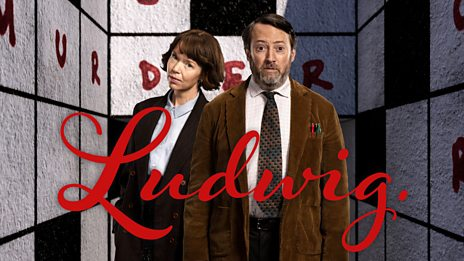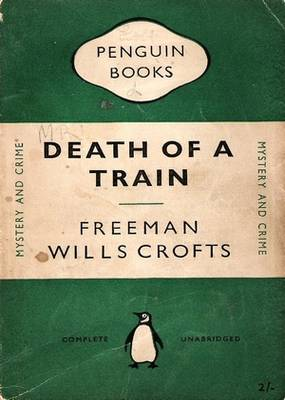Puzzles are all the rage at present. It's a fashion, and like all fashions it will pass in due course, but as a lifelong puzzle fan, I'm delighted that they are having a moment. And it's a very big moment. I enjoyed meeting G.T. Karber, whose Murdle books have been such a big hit, at CrimeFest, and I've been interested to see the recent flood of murder mysteries with a puzzle element. Of course, like any other type of book (or any other artistic venture, come to that) they vary in quality, from the excellent to the banal. But the best ones are truly enjoyable and offer an opportunity for escapism at a time when escapism seems extremely appealing.
So I was interested to watch the new BBC TV series Ludwig. Some people have compared it to Jonathan Creek, but I think it's closer to Death in Paradise - no great surprise, since the creator and writer of Ludwig, Mark Brotherhood, has worked on the Robert Thorogood show. I don't know Mark Brotherhood personally, but I've read some of his interviews and I find his approach to his craft likeable and intelligent as well as highly professional.
The premise of Ludwig is unlikely in the extreme, and it requires two exceptionally appealing actors - David Mitchell (Ludwig, aka John Taylor) and Anna Maxwell Martin (Lucy, wife of John's twin brother, James) - at their best to persuade us to suspend our disbelief. In a nutshell, James is a policeman who has suddenly and mysteriously disappeared. Lucy persuades John to impersonate him in order to find out what has happened to him. And when John does this, not only does he get away with his imposture, he solves one baffling mystery after another in very quick succession.
If you can accept that - and after some initial reservations, I managed to do so - this is perfectly enjoyable light entertainment, with a variety of puzzles, including a locked room mystery to solve. The Cambridge setting makes an ideal backdrop, and having watched all six episodes, I'm pleased that another series is said to be highly likely.

.JPEG)
.JPEG)
.JPEG)
.JPEG)
.JPEG)
.JPEG)
.JPEG)
.JPEG)
.JPEG)
.JPEG)
.JPEG)

.JPEG)
.JPEG)
.JPEG)
.JPEG)
.JPEG)
.JPEG)
.JPEG)
.JPEG)
.JPEG)
.JPEG)
.JPEG)














.JPEG)
.JPEG)
.JPEG)
.JPEG)
.JPEG)
.JPEG)
.JPEG)
.JPEG)
.JPEG)